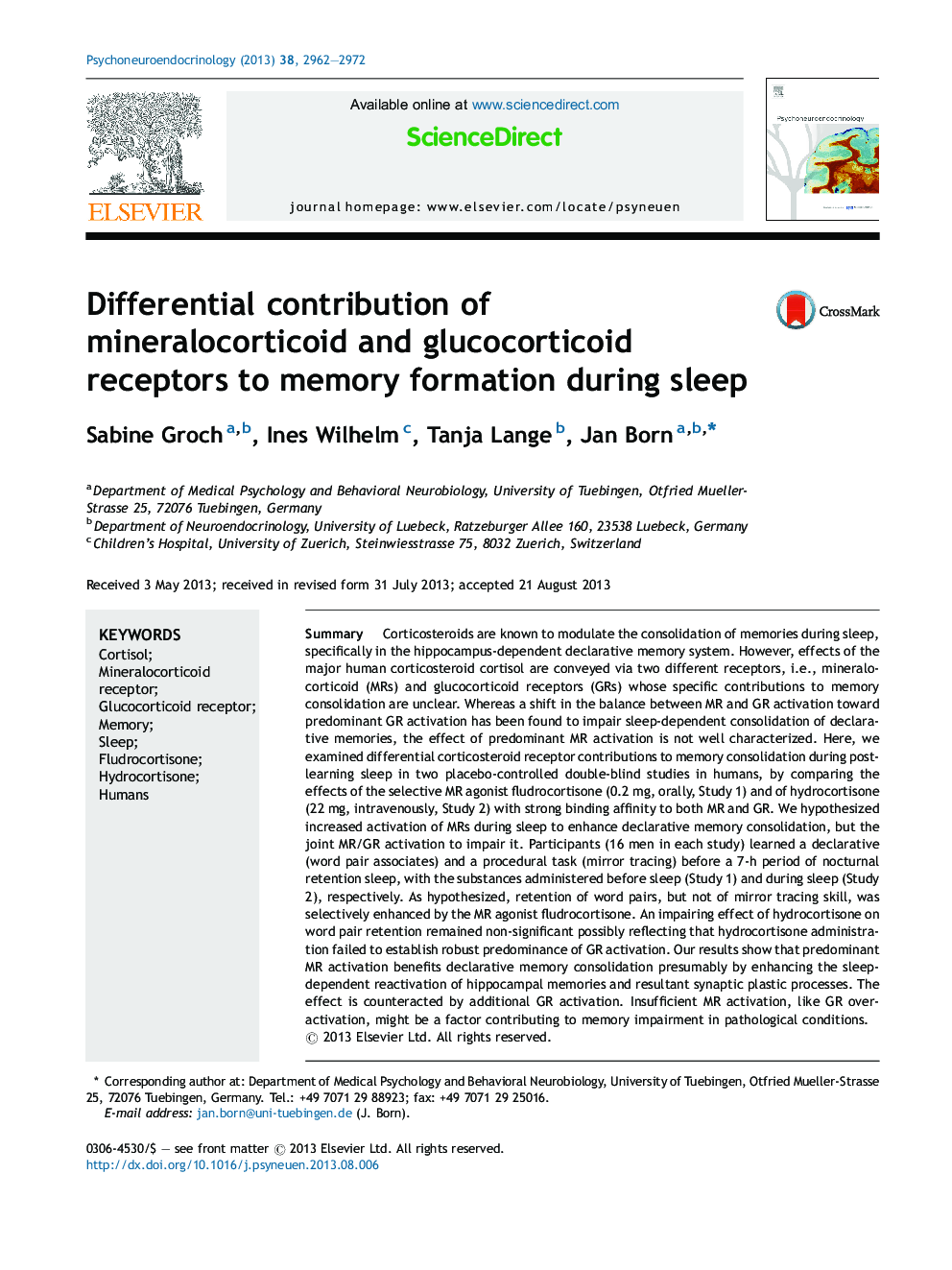| Article ID | Journal | Published Year | Pages | File Type |
|---|---|---|---|---|
| 10305755 | Psychoneuroendocrinology | 2013 | 11 Pages |
Abstract
Corticosteroids are known to modulate the consolidation of memories during sleep, specifically in the hippocampus-dependent declarative memory system. However, effects of the major human corticosteroid cortisol are conveyed via two different receptors, i.e., mineralocorticoid (MRs) and glucocorticoid receptors (GRs) whose specific contributions to memory consolidation are unclear. Whereas a shift in the balance between MR and GR activation toward predominant GR activation has been found to impair sleep-dependent consolidation of declarative memories, the effect of predominant MR activation is not well characterized. Here, we examined differential corticosteroid receptor contributions to memory consolidation during post-learning sleep in two placebo-controlled double-blind studies in humans, by comparing the effects of the selective MR agonist fludrocortisone (0.2Â mg, orally, Study 1) and of hydrocortisone (22Â mg, intravenously, Study 2) with strong binding affinity to both MR and GR. We hypothesized increased activation of MRs during sleep to enhance declarative memory consolidation, but the joint MR/GR activation to impair it. Participants (16 men in each study) learned a declarative (word pair associates) and a procedural task (mirror tracing) before a 7-h period of nocturnal retention sleep, with the substances administered before sleep (Study 1) and during sleep (Study 2), respectively. As hypothesized, retention of word pairs, but not of mirror tracing skill, was selectively enhanced by the MR agonist fludrocortisone. An impairing effect of hydrocortisone on word pair retention remained non-significant possibly reflecting that hydrocortisone administration failed to establish robust predominance of GR activation. Our results show that predominant MR activation benefits declarative memory consolidation presumably by enhancing the sleep-dependent reactivation of hippocampal memories and resultant synaptic plastic processes. The effect is counteracted by additional GR activation. Insufficient MR activation, like GR overactivation, might be a factor contributing to memory impairment in pathological conditions.
Keywords
Related Topics
Life Sciences
Biochemistry, Genetics and Molecular Biology
Endocrinology
Authors
Sabine Groch, Ines Wilhelm, Tanja Lange, Jan Born,
